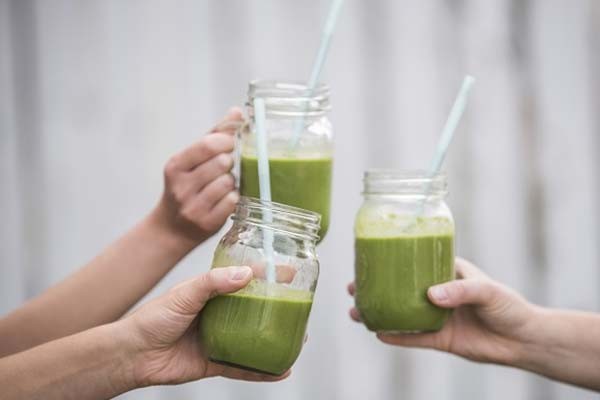Detoxes Are They Beneficial, or a Waste of Time (And Money)

Setting the scene.
Detox diets and detox supplements are extremely popular strategies purported to help with the elimination of certain toxins from the body and to assist with weight loss.
Consequently, many detox advocates claim that these strategies promote overall health and well-being. Common detox strategies include very long fasts (abstaining from all food), diets comprised completely of vegetable and fruit-based juices, as well as plant-infused water fasts (i.e., lemon water and celery water).
Despite, the popularity of these diets and supplement protocols, the term “detox” remains vaguely defined. Additionally, these protocols often refrain from mentioning which specific toxins they actually aim to eliminate from the body. The lack of clear definitions, the absence of a detailed method of action, and the ambiguity of target “toxins” with respect to detoxes as a health aid, makes it difficult for not only researchers, but also the general public to verify the efficacy of said claims.

What does the research say?
To date, there hasn’t been a large number of studies to support the effectiveness of detox strategies for the elimination of certain toxins, for enhancing weight loss, or for improving health status. An additional challenge we face when verifying the claims surrounding detoxes, is that from the few studies that have been conducted to date, they suffer from small sample sizes and risk of bias, hence the study findings must be interpreted with caution.
According to Professor Edzard Ernst – a scientist investigating the effectiveness of detoxes – any study examining the efficacy of detoxes should address the following fundamental questions:
- What are the toxins and toxicants?
- What evidence exists that these toxins damage our health?
- How do we quantify them?
- How do we diagnose a patient requiring a detox?
- Which treatments are effective in eliminating specific toxins and toxicants?

Chemicals in our food and drinks: should we be concerned?
It is widely accepted that certain synthetic chemicals accumulate in the human body and that high concentrations of them can be quite toxic. For instance, a study published in 2012 by the European Food Safety Authority reported that persistent organic pollutants (POPs) were present in detectable amounts in almost all food products. Especially fish, meat, and dairy products.
One important thing to mention is that synthetic pollutants present in foods have declined substantially, and currently there’s no convincing evidence to suggest that our current POP exposure is harmful. Therefore, it is uncertain whether detoxifying such pollutants would be beneficial or “worth it”.

What about detoxes for weight and fat loss?
Detox strategies (particularly excessive fasts and liquid/juice only diets) only lead to weight and fat loss as a byproduct of extreme caloric restriction. Additionally, often the large majority of the weight lost during detox interventions is a result of body water loss and glycogen loss, and minimal actual fat loss. Furthermore, these “toxic” behaviours (pun intended) are not sustainable across the long term. Although some individuals tend to lose significant weight while on juice fasts - for example - they tend to regain the weight back rapidly once the detox period is complete.
Even though there is still a lack of scientific evidence to support the fat-loss enhancing claims of detox strategies, there is no shortage of misleading information (i.e., blogs, social media, advertisements) promoting their effectiveness.
It is important to remember that Instagram anecdotes, blog posts, and “it worked for me” doesn’t suffice for evidence. It is the peer-reviewed scientific research that we should really use to direct our behaviours. However, unfortunately, that said scientific research is heavily absent at this time. Thus, in my mind, it is wise to take the conservative approach, and not waste time, money, and effort on unverified detox strategies until we actually know if they work or not, and what the potential side effects could be.

BONUS TIPS – Ways to support your body’s natural detox system.
- Drink plenty of water
- Eat plenty of fruits and cruciferous veggies in most of your meals.
- Keep your fibre intake high (~15 g per every 1,000 calories)
- Consume adequate amounts of lean protein (optimal to keep glutathione (an antioxidant) levels high)

Jackson Peos has completed a PhD at the University of Western Australia, and has a straightforward approach to nutrition and supplements.
He's completed his BSc in Sports Science, and Exercise & Health, and his BSc (Hons) in Exercise Physiology.
More about Jackson PeosReferences:
- Ernst E. Alternative detox. Br Med Bull. 2012;101:33-8. doi: 10.1093/bmb/lds002. Epub 2012 Jan 31. PMID: 22297655.
- Jung SJ, Kim WL, Park BH, Lee SO, Chae SW. Effect of toxic trace element detoxification, body fat reduction following four-week intake of the Wellnessup diet: a three-arm, randomized clinical trial. Nutr Metab (Lond). 2020 Jun 22;17:47. doi: 10.1186/s12986-020-00465-9. PMID: 32582363; PMCID: PMC7310262.
- Klein AV, Kiat H. Detox diets for toxin elimination and weight management: a critical review of the evidence. J Hum Nutr Diet. 2015 Dec;28(6):675-86. doi: 10.1111/jhn.12286. Epub 2014 Dec 18. PMID: 25522674.
- Obert J, Pearlman M, Obert L, Chapin S. Popular Weight Loss Strategies: a Review of Four Weight Loss Techniques. Curr Gastroenterol Rep. 2017 Nov 9;19(12):61. doi: 10.1007/s11894-017-0603-8. PMID: 29124370.




























